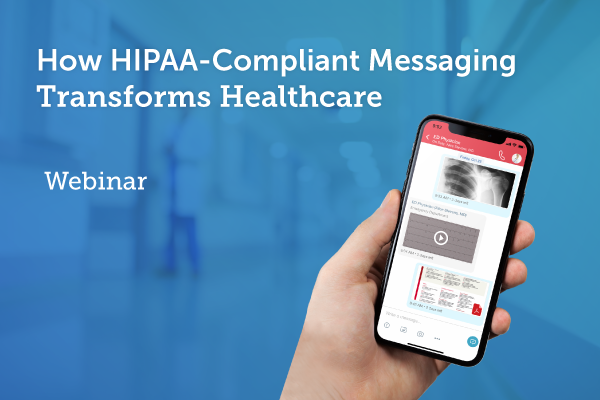The recently published 2021 KLAS Clinical Communication Platform Report has confirmed clinical communication platforms improve efficiency in healthcare, streamline communication across most areas of hospitals, and lead to concrete outcomes, with improvements to clinical communication the biggest benefit.
KLAS Research is a Utah-based company that provides data and insights into health information technology (HIT) that helps healthcare organizations identify HIT solutions that will provide important benefits and a good ROI. KLAS collects data on HIT solutions, including from healthcare industry reports, websites, and feedback from healthcare professionals that are using HIT in the workplace. KLAS analyzes the data, identifies key trends and insights, and produces reports on the findings of its research. The researchers also work with leadership teams at vendors to help them improve their HIT solutions based on user feedback to help them deliver better outcomes.
For its latest Clinical Communication Platform Report, KLAS researchers profiled some of the most innovative and cutting-edge vendors in the field whose solutions are delivering invaluable benefits in healthcare and users of clinical communication platforms were surveyed and asked for their feedback on the solutions they have adopted.
TigerConnect, the leading clinical communication platform provider in the United States, was recognized as having the largest base of acute care customers and for the value its clinical communication platform delivered. Feedback from healthcare professionals that use the platform confirmed it has led to improved efficiency for clinical support staff and improved nurse satisfaction and patient satisfaction and care through timely, efficient communication.
The top outcomes healthcare delivery organizations have achieved by implementing the TigerConnect platform are improved clinician response times, increased transparency into patient teams and schedules, and increased clinician workflow satisfaction with fewer call interruptions and much easier access to communication. TigerConnect customers confirmed the solution has helped improve patient team collaboration in terms of patient transport, bed management and environmental services, increased access to and the secure sharing of patient data, more efficient clinics and outpatient care, and a reduction in readmissions, fewer errors, and a faster crash team response.
“Our administration uses TigerConnect’s solution. If people ask for TigerConnect accounts, we can give them accounts. I don’t know how we would have been able to get through the COVID-19 pandemic without this solution,” said one TigerConnect user.
The solution was highly praised for ease of use coupled with enterprise contracting, which allows simple rollouts by many different user groups to achieve organization-wide efficient communication.
“One outcome that we have achieved with TigerConnect’s solution has been improved communication between our nurses, providers and administration. We can just text someone in administration rather than having to know their personal phone number.,” said one TigerConnect user. “The value of adding two-way asynchronous communication in our clinical areas has been huge. They can always put themselves on ‘do not disturb’ if they don’t want people to text them. When nurses or providers are actively engaged with patients, they can get the information they need with the system, and then return that information.”
This year has seen TigerConnect roll out significant feature enhancements based on customer feedback, and the company has also made key acquisitions of on-call physician scheduling and advanced middleware solutions, deepening the capabilities of its platform considerably.
“2021 has proven a tipping point as healthcare systems evolve their requirements from secure messaging to the most contextual, advanced clinical collaboration experiences. Clinicians are demanding an all-in-one mobile collaboration experience that helps them raise the standard of care and improve patient outcomes,” said Will O’Connor, MD, TigerConnect Chief Medical Information Officer. “The KLAS report validates TigerConnect in our vision to make hospitals and care delivery more agile.”
The post KLAS Research: Clinical Communication Platforms Improve Efficiency in Healthcare appeared first on HIPAA Journal.
